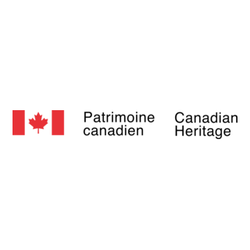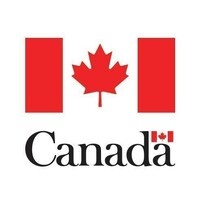
Open
Indigenous Initiatives Fund IV
Last Update: December 4, 2025
QC, Canada
Supports economic, social, and community projects for Indigenous peoples
Grant and Funding
At a glance
Funding available
Financing goals
Integrate new technologies
Renovate your business/factory
Reduce the ecological footprint
See more
Eligible Funding
- Up to 50% of project cost
Timeline
- Closing date : December 31, 2026
Eligible candidates
Eligible Industries
- Other services (except public administration)
- Public administration
Location
- Quebec
Legal structures
- Financial cooperative
- Non-profit
- Public or Parapublic institution
- For-profit business
- Social economy enterprise
- Non-financial cooperative
Annual revenue
- All revenue ranges
Organisation size
- All organization sizes
Audience
- Indigenous Peoples
- Women
Non-profit candidates
Sector of operation
- Culture and Arts
- Social Services
- Economic, Social and Community Development
- Housing
- Children and Youth Organizations
- Diversity and Inclusion
Target groups
- Children & youth
- Indigenous peoples
- Women & girls
- Rural / Remote communities
- Business owners / entrepreneurs
- Nonprofits / charities
- Community leaders
Revenue structures
- All structures
Scope
- Local
- Regional
- Provincial
Overview
The Indigenous Initiatives Fund IV (IIF IV) provides financial support of up to $800,000 for projects aimed at improving the economic, social, and community development of Indigenous communities in Québec. Eligible activities under this program include economic development, community infrastructure renewal, social initiatives, consultation support, and services for Indigenous people in urban environments.
Activities funded
- Projects that promote the economic development of Indigenous peoples, including business start-up, expansion, or development.
- Market studies, feasibility analyses, and business plans related to Indigenous economic development.
- Projects for the creation, renewal, or improvement of community infrastructure, such as youth centres, playgrounds, community halls, and other non-residential spaces in sectors like social services, leisure, sports, culture, tourism, and information technologies.
- Initiatives aimed at local economic development, such as the development of strategic economic development plans, resource inventories, and support measures for Indigenous businesses.
- Entrepreneurial projects benefiting Indigenous youth (35 and under) and women entrepreneurs.
- Projects from Indigenous social economy enterprises and collective organizations producing goods and services for community benefit.
- Professional upskilling and targeted training essential for Indigenous workforce development in the context of entrepreneurial projects.
- Digital transformation projects, including website or online platform creation associated with eligible entrepreneurial activities.
- Community action projects delivered by Indigenous community organizations to support their overall social mission or to improve socio-economic conditions.
- Projects and activities supporting the mission of Indigenous community action organizations serving urban Indigenous populations, including the provision of culturally appropriate direct services.
- Support for Indigenous communities’ participation in government-led consultation processes, including the establishment of consultation offices and facilitation of participation in specific consultation projects.
- Social development initiatives, including the promotion of Indigenous cultures and languages, reduction of racism and discrimination, improvement of community relations, and encouragement of citizen engagement.
- Projects that facilitate partnerships and collaborations between Indigenous and non-Indigenous organizations, communities, or networks in areas such as education, health, and cultural participation.
- Infrastructure improvement and construction for Indigenous community action organizations serving urban Indigenous people, including renovations, new infrastructure, and upgrades for community and temporary accommodation facilities.
Examples of admissible projects:
$ 400,000
Developing an Indigenous business hub with training programs
$ 750,000
Develop a cultural center supporting Indigenous arts and crafts
$ 800,000
Revitalize community infrastructure with new youth center
$ 600,000
Renewing community centers with eco-friendly infrastructure upgrades
Eligibility
- The applicant must be an Indigenous community, Indigenous business, female Indigenous entrepreneur, Indigenous business leader aged 35 and under, Indigenous social economy enterprise, organization mandated to represent Indigenous nations and communities, Indigenous community action organization, or a non-profit organization.
- The project must meet the eligibility criteria specific to the program component for which support is requested.
- For most components, the project must be prioritized by a resolution from the nation or community council (when applicable).
- Eligible projects must align with the objectives of the chosen component (economic development, community infrastructure, loan guarantee, community action, social development, support for consultation, or assistance for Indigenous people in urban environments).
- Applications must include specified supporting documents, as outlined per component (such as financial statements, resolutions, business plans, etc.).
- Some components require the applicant to have signed a specific agreement with the Government of Québec.
- The project or initiative must be submitted within the program's timelines (generally by March 1, 2027, or December 31, 2026, depending on the component).
Who is eligible?
- Indigenous communities
- Indigenous businesses
- Indigenous female entrepreneurs
- Indigenous business leaders aged 35 and under
- Indigenous social economy enterprises
- Organizations mandated to represent Indigenous nations and communities (associations, tribal councils, commissions, etc.)
- Indigenous community action organizations
- Non-profit organizations (Indigenous and, in some cases, non-Indigenous serving Indigenous populations)
Who is not eligible
The types of companies not eligible are :
- Non-aboriginal companies
- Companies that do not meet specific component criteria
- Companies that do not meet the eligibility requirements established for each component
Eligible expenses
- Capital expenditures as defined by generally accepted accounting principles.
- Expenses related to the development and implementation of digital transformation, such as design of websites or web platforms (up to 20% of total eligible project costs).
- Costs associated with carrying out feasibility studies, business plans, technical and financial evaluations, market analyses, and integrated management studies (within stated category limits).
- Costs related to workforce upskilling or job-specific training for Indigenous individuals as part of eligible entrepreneurial projects (up to 20% of total eligible project costs).
- Expenses necessary for the implementation of local economic development, including costs for developing strategic plans, inventorying community resources, and engaging/forming local economic development officers.
- All costs required to carry out social economy projects (for qualifying organizations), including salaries, professional fees, equipment, and operating expenses, as per the program limits.
- Direct costs of conducting activities under the program’s community action support, including personnel costs associated with core operations, production of required financial and activity reports, office material, local occupancy, technological and digital infrastructure, and facility maintenance.
- Expenditures directly linked to temporary project management staff hired specifically for infrastructure projects.
- Costs for professional services and salaries for personnel involved in coordination, support, training, research, proximity work, and related project activities under the social development stream.
- Workshop and training fees associated with social development activities.
- Transportation and travel expenses in accordance with Quebec government scales, for project purposes.
- Evaluation costs (e.g., surveys, intervention plans) relevant to eligible activities.
- Promotion and advertising costs for project-related activities.
- Fees for printing and distribution of documents related to eligible actions.
- Facility rental fees when necessary for project delivery.
- Material and supply expenses required for the delivery of eligible activities and services.
- Costs related to the preparation of financial documents and other reports required by funding agreements.
- Operational costs for setting up and maintaining consultation offices, as well as the production, preparation, writing, and translation of documents for consultation activities.
- Fees for specialists, travel, meeting and assembly costs, and participation in roundtables with partners (within the rates established by the Quebec government) for consultation activities.
- Purchase of community equipment necessary for infrastructure and project realization.
- Acquisition of information technology (IT) and related software/hardware, including training needed for use.
- Incidentals, professional fees, and costs related to temporary financing for infrastructure projects.
- For urban Indigenous services: salaries and benefits for direct service personnel, professional and miscellaneous fees, transport and translation costs, essential facility rental, and up to $30,000 per year for equipment and supply renewal or maintenance.
- For infrastructure stream: costs related to business contracts for eligible construction, management, professional analyses, and all expenses necessary for project realization as per standard accounting rules.
- Administrative costs directly related to a project or initiative (cannot exceed 10% of the financial support granted).
Eligible geographic areas
- Indigenous communities in Québec
- Urban environments within Québec where Indigenous people reside
Selection criteria
- Alignment of the project with the objectives and principles of the program and relevant funding stream.
- Relevance of project objectives in relation to the targeted funding envelope.
- Technical feasibility and realism of the project execution schedule.
- Financial feasibility of the project, including robustness of the financial plan, reliability, coherence and realism of financial projections, and anticipated profitability.
- Quality of the organization, specifically the competence and experience of the promoters and, if applicable, the appropriateness of external expertise involved.
- Thoroughness of the market analysis, especially awareness of the needs of the target population or clientele.
- Tangible results to be achieved with the requested funding, such as the number of jobs created or maintained, investments generated, and contributions to local and regional development.
- Expected sustainability and structuring effects for Indigenous communities.
- Justification of financial need and demonstration of the necessity of resorting to the program for project realization.
- Quality and relevance of the action plan or programming for community action projects, including the size of the organization, coverage area, and scope of the mission.
- Management capacity of the applicant and suitability of its organizational structure.
- Interaction with the local environment and diversification of funding sources.
- Financial situation of the organization, including debt ratio and level of unrestricted net assets.
- Clarity and precision of objectives pursued for urban Indigenous and social development projects.
- Realism of budget forecasts, financial structure, and implementation calendar.
- Anticipated benefits and structuring effects for Indigenous people and communities.
- Specific additional criteria for certain categories, as detailed in program documentation (e.g., ownership and leadership criteria for women and youth entrepreneurship).
How to apply
1
Of course! Please provide the French text you'd like me to translate into English.
- Check the eligibility of your project against the criteria of the chosen funding component.
- Gather the required documents for the application (project plan, budget, etc.).
2
Of course! Please provide the French text you would like me to translate.
- Fill out the grant application form by providing all the requested information.
- Attach all required documents to the grant application.
3
Of course! Please provide the French text you'd like me to translate into English.
- Submit the complete application within the deadlines set by the grant program.
- Wait for the evaluation of the application by the responsible authorities.
Additional information
- The program covers a five-year period from 2022-2023 to 2026-2027, with applications to be submitted by March 1, 2027 (where specified).
- Funding can be combined with other sources of government aid, but cumulative aid caps vary by program component (e.g., not exceeding 90%, 95%, or 100% of eligible expenses, depending on the component).
- For funding under $25,000, a simple letter of announcement is used; for funding above $25,000, a formal agreement outlining obligations and reporting requirements is mandatory.
- Interim advances may be available for organizations transitioning from previous editions of the fund, with a maximum of $60,000 as a temporary measure for 2022-2023.
- Specific competitive bidding (procurement) requirements apply to construction projects over certain thresholds, including the need for public or invitation-based calls for tenders.
- Applicants must maintain separate accounting for grant-funded projects and ensure compliance with generally accepted accounting principles, regardless of funding level.
- Reporting requirements and expectations for financial statements depend on the cumulative annual funding received—ranging from audited financial statements to internal statements for smaller amounts.
- Projects with a collaborative element between Indigenous and non-Indigenous organizations are eligible for full participation if the Indigenous proponent maintains majority control and ownership.
- The program is managed by the Secrétariat aux relations avec les Premières Nations et les Inuit (SRPNI). For any inquiries or submissions, applicants can contact financement_fia4@mce.gouv.qc.ca.
- Funding may be disbursed in instalments, with no more than 80% issued upfront, and final payments made only after satisfactory submission of all required documentation.
- If a previous government grant resulted in a default within the last two years, or if the applicant is listed in the Registry of Enterprises Ineligible for Public Contracts, new aid may be denied.
Contacts
financement_fia4@mce.gouv.qc.ca
QC, Canada
Apply to this program
Frequently Asked Questions about the Indigenous Initiatives Fund IV Program
Here are answers to the most common questions about the Indigenous Initiatives Fund IV. This section explains what the program is, how much funding is available, eligibility requirements, application deadlines, and other important details to help you determine if this grant is right for your business.
What is the Indigenous Initiatives Fund IV?
How much funding can be received?
Who is eligible for the Indigenous Initiatives Fund IV program?
What expenses are eligible under Indigenous Initiatives Fund IV?
Who can I contact for more information about the Indigenous Initiatives Fund IV?
Where is the Indigenous Initiatives Fund IV available?
Is the Indigenous Initiatives Fund IV a grant, loan, or tax credit?
Apply to this program
More programs like this

Grant and FundingClosed
Call for projects to combat homophobia and transphobia
Gouvernement du QuébecFunds Quebec organizations’ projects combating homophobia and transphobia

Grant and FundingClosed
Accelerating the local climate transition - Component 1
Environnement Québec (MELCC)Supports municipal climate action planning and implementation in Quebec

Tax CreditsWage Subsidies And InternsOpen
Financial assistance for the hiring of a person to integrate a job on a long-term basis
Gouvernement du QuébecSupports employers hiring candidates facing employment barriers

Grant and FundingClosed
Greater Montreal Climate Fund — 2025-2026 Call for projects
Greater Montreal Climate FundSupports innovative projects reducing greenhouse gas emissions in Montreal

Grant and FundingClosed
Anti-Racism Action Program
Canadian HeritageSupports initiatives addressing racism, discrimination, and social barriers

Grant and FundingLoans and Capital investmentsOpen
Financial assistance for infrastructure projects supporting the mining sector (ENIAM)
Gouvernement du QuébecFunding for strategic infrastructure supporting northern Quebec mining sector

Grant and FundingClosed
Accelerating the local climate transition - Component 2
Ministry of Municipal Affairs and HousingSupports municipal climate adaptation and mitigation project implementation

Grant and FundingClosed
Celebration and Commemoration Program
Canadian HeritageFunding for commemorative and celebratory pandemic recovery initiatives

Grant and FundingClosed
Indigenous Languages Program - Indigenous Languages Component - First Nations Languages Funding Model
Canadian HeritageSupports revitalization and maintenance of First Nations languages

Grant and FundingClosed
Environmental Damages Fund
Environment and Climate Change Canada (ECCC)Funds projects that restore and protect Canada's natural environment
Sign up to our platform to access the Indigenous Initiatives Fund IV information sheet for free
Get access to 4,000+ programs, practical guides, personalized alerts, and an AI assistant to support your grant applications.